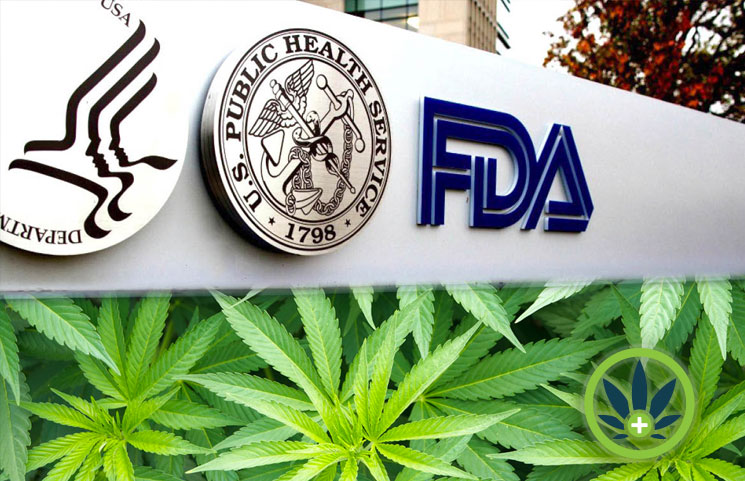In 2023, the Food and Drug Administration (FDA) announced its most recent position on the question of whether or not it will offer oversight for the manufacture and sale of goods containing cannabidiol (CBD), following several years of consideration, hearings, and the gathering of information.
In this piece, we’ll discuss the Food and Drug Administration’s decision to not restrict sales of CBD while at the same time pushing for new rules to protect the quality and safety of CBD products that are currently on the market. We will also talk about the legal history that led to the conclusion that the agency made, as well as the consequences that decision has for both consumers and the industry.
What is the position of the FDA regarding CBD?
Dissecting the FDA’s stance on CBD needs a certain level of sophistication, but the following are the two most essential aspects of the decision that was made:
1.The Food and Drug Administration (FDA) is of the opinion that it does not yet possess the necessary framework and scientific evidence to strike a balance between the demands of consumers and the potential hazards connected with CBD; and
2.The Food and Drug Administration (FDA) did not grant requests submitted by industry groups to initiate the process of drafting standards for the marketing of CBD as a dietary supplement.
According to a statement released by the FDA’s Deputy Commissioner Dr. Janet Woodcock, “Given the available evidence, it is not apparent how CBD products could meet safety standards for dietary supplements or food additives.” [CBD] stands for cannabidiol.
“For instance, we have not located sufficient information to estimate the amount of CBD that may be eaten or for how long it can be consumed before it causes harm. As a result, we have no plans to seek rulemaking that would make it possible to use CBD in dietary supplements or traditional foods.
“A new regulatory pathway would benefit consumers by providing safeguards and oversight to manage and minimize risks related to CBD products,” she says. “A new regulatory pathway would benefit consumers by providing safeguards and oversight.”
However, before establishing that regulatory approach, the government has stated that it will want additional research concerning the possible adverse effects of CBD, particularly in relation to consumption of the cannabinoid over an extended period of time.
In addition to that, it will require aid and input from Congress. According to attorneys Howard Sklamberg and Elizabeth Trentacost of Arnold & Porter, the Food and Drug Administration (FDA) “all but explicitly” asked the legislative body to step in and help.
The attorneys reach the following conclusion: “Ultimately, FDA’s stance leaves Congress in the driver’s seat when it comes to establishing a regulatory path forward for CBD.”
Should the responsibilities for regulating CBD be under the purview of the FDA?
The Food and Drug Administration (FDA) was first established with the purpose of supervising and enforcing consumer protection regulations pertaining to food. However, the Food, Drug, and Cosmetic Act (FD&C Act), which was passed in 1938, brought medications and medicines within the FDA’s jurisdiction.
Later modifications to the agency’s responsibilities enlarged its jurisdiction to cover dietary supplements, despite the fact that it is unable to approve these items “for safety and effectiveness, or to approve their labeling, before the supplements are sold to the public,” as stated on the website of the Food and Drug Administration (FDA).
According to the EPA, cannabidiol (CBD) as well as its psychoactive relative tetrahydrocannabinol (THC) do not qualify as supplements as defined by the FD&C Act. Products that include CBD are considered to be in the same category.
In spite of the reservations expressed in the announcement made on January 26, the Food and Drug Administration (FDA) has already taken the first step toward regulating CBD as a drug by approving the CBD-based anti-seizure pharmaceutical Epidiolex in June of 2015.
According to a statement made by the former FDA Commissioner Dr. Scott Gottlieb, what sets Epidiolex apart from other consumer CBD products is the agency’s decision that the evidence supporting the specific use of Epidiolex for its intended purpose — treating two rare and severe forms of epilepsy — was sufficient enough to approve the individual product. This is what sets Epidiolex apart from other CBD products on the market.
What kind of effects will the decision made by the FDA have on customers?
In the end, the customers are at risk since they do not have sufficient control over the components of their CBD. Studies on CBD products, their effectiveness, and their purity have demonstrated that many easily accessible CBD products do not necessarily contain the dose or purity that they claim to have. These studies have also indicated that these products do not necessarily include the purest form of CBD.
For instance, according to the findings of a study that was conducted in 2022 and analyzed a sample of 80 hemp-derived CBD products that were made available to consumers in the United States through either online or traditional retail channels, slightly under half of those items contained at least 10% more or 10% less CBD than what was declared on the packaging of those goods.
The authors of the study reach the following conclusion: “Consumers and practitioners should remain cautious of unregulated and often-mislabeled CBD products due to the risks of taking too much CBD (e.g., drug-drug interactions, liver enzyme elevations, increased side effects) and the consequences of taking too little CBD (e.g., no clinical benefits due to underdosing),” the authors write.
According to the aforementioned study as well as the observations of academics and legal professionals, regulation will be essential in minimizing concerns over dose and purity while simultaneously protecting consumers.
“Much is at stake in getting CBD’s safety profile defined for consumers, clinicians, manufacturers, and others,” writes Rosalie Liccardo Pacula, who is a professor of health policy, economics, and the law at the University of Southern California.
“Because it is neither defined nor controlled, CBD will continue to present dangers that are not essential, and it will never realize its full potential as a valid dietary supplement. “Congress should find the funds to unlock the mysteries of CBD, and it should give the FDA the political cover it needs to ensure that the CBD marketplace in the United States is safe and useful.”
Simply shop for CBD at Jointly Matches if you are interested in purchasing items that include CBD that are of a high quality and are made by reputable businesses. You can be sure that the cannabis or CBD product you purchase from Jointly Matches originates from a reputable business because the company that produced it has already been investigated. You are able to not only view the COA for your CBD products, but you are also able to view how other Jointly users rated items for achieving specific goals, such as the management of aches and pains or the improvement of sleep. In a nutshell, Jointly does the legwork for you to find the goods that will help you achieve your objectives the most effectively by analyzing the product ratings left by actual customers. The best part is that the things will be delivered to your home in an authorized and covert manner.
What kind of effects will the decision made by the FDA have on CBD companies?
Disappointment was expressed by certain representatives of the industry in response to the decision made by the FDA.
“The FDA is incorrect in its assessment of whether or not CBD is safe to use. “There is clear, established evidence of safety over the years, contrary to the FDA’s continued assertions regarding the safety of CBD,” Jonathan Miller, General Counsel of the U.S. Hemp Roundtable, said in a statement.
“We therefore see no need for the FDA to go through the lengthy, burdensome exercise of establishing a new regulatory pathway for CBD, or other hemp-derived cannabinoids,” he continues. “This would be unnecessary.”
An attorney from Greenspoon Marder named Doug R. Sargent believes that the sector will have to “live with the murky status quo” for as long as regulation is not implemented.
In terms of enforcement and compliance, the status quo means that stakeholders in the CBD business should continue to anticipate that the FDA will clamp down on a subset of companies whose products the agency believes are being improperly marketed, making unfounded medical claims, or being advertised to children. In other words, the CBD industry should continue to assume that the FDA will continue to assume that the status quo will continue.
A group of attorneys from Eversheds Sutherland advises, “Stakeholders should keep a close eye on the legislative process and consider lobbying efforts where appropriate,” adding that corporations should take extra precautions while marketing their products to avoid upsetting the FDA.
What are the next steps for the regulation of CBD?
Despite the Food and Drug Administration’s reluctance to create a regulatory framework for CBD, the Agricultural Improvement Act, often known as the 2018 Farm Bill, made CBD that is derived from hemp plants federally legal in 2018. This occurred in 2018, despite the FDA’s reluctance to create a regulatory framework for CBD.
According to MJ Biz Daily, Representative Earl Blumenauer of Oregon stated that the new bill “absolutely poses a path forward” for general cannabis reform at the federal level. Some politicians have already voiced their support for attaching nationwide cannabis or hemp regulation to the upcoming replacement for the bill that expired in 2018.
According to Pacula of USC, researchers need to continue to pave the road towards CBD regulation with new evidence regarding the safety and usefulness of the cannabinoid while the government mulls over its legislative and regulatory choices.
According to her, it is vital that further research be conducted on the benefits and hazards of CBD. “Without new authority that would ultimately allow safe cannabidiol-based products access to the market, the Food and Drug Administration (FDA) has the impossible task of controlling what can only be described as a wild west of cannabis-based products,”


